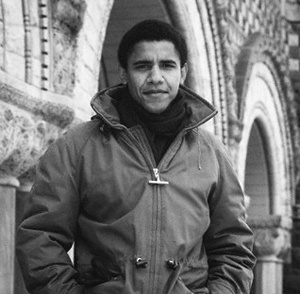Arabs Disillusioned with Obama?
Some analysts believe that his promises are merely political gestures and Obama is not truly intent for change

His skin color and middle name have brought him popularity among Middle Eastern people. However, Arab and Muslim intellectuals do not look at Obama that way.
Polls show that Barack Obama has succeeded in gaining people’s favor in many countries. In Europe, where political literacy is relatively higher, the results show that Obama would beat McCain by a significant margin.
According to one survey by the British Daily Telegraph, in most European countries Obama would win the elections. The margin varies according to each country, from 7% in countries like Russia to the landslide 57% in France.
The story is the same in Middle East countries. Hopes in Obama have various reasons. Invasion of Iraq and Afghanistan, the Abu Ghraib scandal, Guantanamo prisoners and Bush’s stark religious rhetoric has disappointed many Muslims, especially the Arab world, from changes in the U.S. leadership. But rise of a figure like Obama has aroused new hopes for these people.
Obama has acknowledged the plight of Palestinians in the Arab-Israel conflict. He has Muslim roots and has lived for some years in Indonesia, the most populated Muslim country. For some people his middle name –Hussein- is reminiscent of Saddam, but for Shiites it reminds them of the name of Muhammad’s grandson whom they greatly revere. And although he’s a Christian, it seems that Obama’s interpretation of the faith is deeper than Bush’s dogmatic beliefs.
Obama’s name and skin color is what has attracted Middle Eastern people most and created the current good sentiments. But Middle Eastern elite do not fall for such superficial signs. Doubts over Obama’s ability to bring changes to U.S. policies and his recent contradictory behavior have made them watchful.
In the Arab world, where taking an anti-occupation stance against Iraq is a political yardstick, Obama has been known as adopting an acceptable view over the continued presence of U.S. military forces. But his recent shifting tone has not remained hidden from Arabs’ eyes.
Asharqalawsat has addressed ’cautious’ withdrawal replacing the immediate withdrawal Obama had previously defended. Another article in this daily newspaper argues that Obama’s plan on U.S. Army’s withdrawal from Iraq has only a few months span of difference with that of McCain.
On the other hand, although Arab countries are concerned over the influence of their Persian-speaking, Shiite neighbor, i.e. Iran, in the region, many Arab intellectuals welcomed Obama’s plan for unconditional talks with Iran, but doubts surfaced as Obama later talked of preliminary conditions which should be met before negotiations started.
On this issue, al-Quds wrote that Obama tends to attract international attention by launching an initiative just as the one Kissinger carried out in normalizing ties with China. The article argues that meanwhile, Obama showed his true nature saying "there’s no greater threat to Israel or to the peace and stability of the region than Iran".
The Kuwaiti al-Watan also wrote that Obama’s emphasis on Iran’s threat is a move to address increasing worries of Persian Gulf Arab states over Iran and their inclination to get closer to the United States.
Obama’s speech in AIPAC has added to Arab intellectuals’ frustration. He pledged to continue multi-billion dollar aids to Israel and insisted that "Jerusalem will remain the capital of Israel and it must remain undivided".
Many Arab journalists believe that restraints in United States’ political system affect any effort to change the course of U.S. foreign policies. Inflexibility of this system has even led to Obama’s withdrawal from his plans to bring changes at the domestic level and has prompted speculations about his turn to right.
His recent statements about keeping arms, implicit opposition to abortion and tacit approval of death sentence for child abusers mark changes according to some political observers.
Obama is still ahead of 72-year-old McCain in polls, though his recent stances have relatively decreased the margin. Some analysts believe that his promises are merely political gestures and Obama is not truly intent for change.
But meanwhile, there are others who believe his previous positions on issues such as pulling out of Iraq and unconditional talks with Iran resulted from his inexperience in foreign policy, and the Afro-American candidate is following a moderate course these days.

